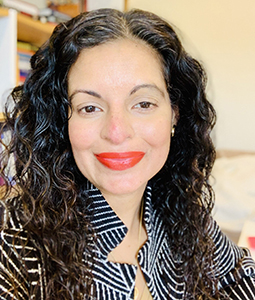
Lynette Martins joined DePaul Law in 2025 as a Jaharis Faculty Fellow. Her scholarship explores the intersection of law, health policy and bioethics; health justice and equity; and global health security, and her recent and forthcoming scholarship appears in the Texas Environmental Law Journal, Hastings Center Report, Tulsa Law Review, Medical Law International and Pace Law Review.
Professor Martins most recently taught Public Health Law and The Patient-Clinician Relationship (Bioethics) as an adjunct assistant professor at New York Medical College. She also is a Global Institute of Human Rights Scholar with the University of Pennsylvania Carey Law School; currently serves as co-chair of the immigration and bioethics affinity group of the American Society for Bioethics and Humanities; and is the project lead for an NIH-funded Parkinson’s Disease initiative in The Bahamas. Previously, she served as a senior research fellow at the Solomon Center for Health Law and Policy and an associate research scholar at Yale Law School, where she was a member of the clinical ethics committee at Yale New Haven Hospital. She also worked as a research assistant at Georgetown University’s O’Neill Institute for National and Global Health Law.
Professor Martins holds an LLM, with distinction, from Georgetown University and a master of bioethics, magna cum laude, from the University of Pennsylvania, as well as a postgraduate diploma in population health evidence from the University of Manchester and a law degree from the University of Huddersfield, both in the UK.